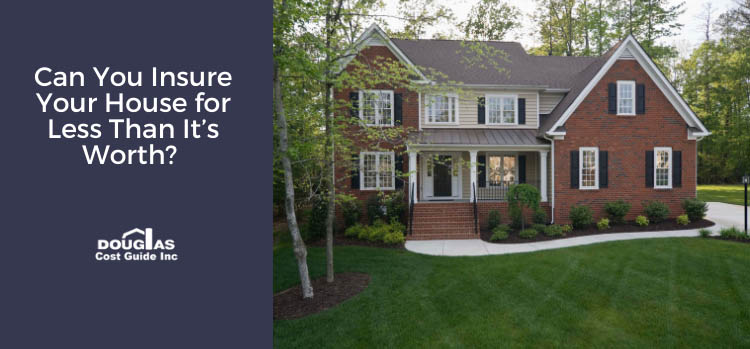Some cash-strapped property owners sometimes wonder whether they can insure their house for less than it’s worth. After convincing themselves nothing catastrophic will happen, homeowners hope lowering monthly insurance premiums will help rein in personal expenses. Although being underinsured is generally a bad idea, it may surprise you to learn it’s possible. In fact, an increased number of homeowners find themselves in this same situation by mistake.
Insuring your home for less than its replacement costs can have devastating financial consequences. By understanding the mechanics of insurance coverage and ways to avoid underinsured risk, people are better positioned to protect the single most significant investment of their life — their homes.
Why You Shouldn’t Underinsure Your Home
It’s usually a poor decision/idea to deliberately insure any building for less than its replacement cost. Being underinsured means a property owner may be forced to pay replacement or repair costs out-of-pocket.
One example of knowingly remaining underinsured involves the “80 Percent Rule.” The rule dictates that homeowners are required to carry coverage equal to 80 percent of replacement costs. If a house is estimated to cost $200,000 to rebuild, the policy must reflect at least $160,000. Failure to purchase such as policy results in the homeowner getting a check below the cost of repairs or replacement. Taking out a policy that doesn’t fully cover a loss can prove very expensive. While a handful of property owners exercise poor judgement, many find themselves inadvertently underinsured.
Calculating Your Rebuilding Costs: How Much Homeowners Insurance Do I Need?
It seems to make sense that a home insurance policy should cover the purchase price or fair market value. Unfortunately, neither of those estimates necessarily sync with actual replacement costs. Instead, property owners are tasked with calculating how much it would cost to rebuild in today’s economy. The only way to truly know how much coverage you require is to secure an accurate replacement cost estimate.
Factors That Impact Home Rebuilding Costs
The majority of families neither work in construction nor possess home estimation expertise. That’s why having a reliable replacement estimation tool such as the Douglas Residential Cost Guide proves invaluable. These are factors everyday people can input into the online Douglas Cost Guides:
- Square Footage
- Architectural Design
- Impact of Upgrades and Remodeling
- Attached Buildings
- Specialized Workmanship
- Use of High-End Materials
- Regional Materials and Labor Costs
- Cost of Municipal Fees, Permits, and Inspections
Wide-reaching factors must be accounted for to arrive at an accurate replacement cost figure. And that is the number people need to calculate home insurance value.
Use a Professional Home Replacement Cost Estimator
The Douglas Residential Cost Guide offers people outside the construction, insurance, and real estate sectors the ability to generate a reliable replacement cost estimate. Because the Douglas Cost Guides represent the gold standard of home replacement cost estimators, they are widely adopted by insurance companies and are available to homeowners.

